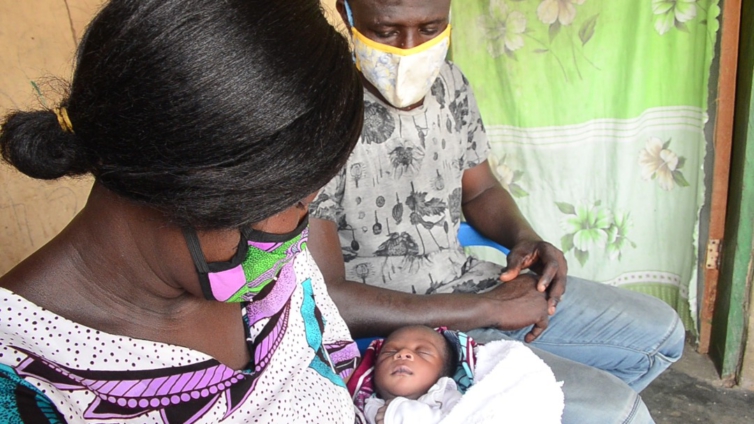My eyes have been opened the more to the challenging COVID-19 and its impact on women from learning gathered at a virtual symposium.
It was organised last Tuesday by the United Nations Gender Equality Sector Team in collaboration with Zonta Club of Accra, Zonta International’s premier Club in Ghana and Africa.
The symposium was aimed to raise awareness on the contribution of women to the national COVID-19 response, as well as deepen the general understanding of the gendered dimension of COVID 19. It was under the theme, “Women in leadership: Achieving an equal future in a COVID-19 world”.
Various speakers from the UN sectors in Ghana, including UN Operations, UN Gender Equality Sector, UNDP, UNAIDS as well as the President of the Zonta Club of Accra spoke in turns elaborating on some of the specific impacts of COVID-19 on women in Ghana. Various roles played by the UN office in Ghana to mitigate the impact of the pandemic were highlighted.
The three main resource persons at the symposium, a clinical psychologist, an HIV-AIDS advocate and a returnee from the Middle East shared their experiences, challenges and contributions to the COVID-19 response.
From all the presentations and the discussions therefrom, there is no gainsay that the pandemic has impacted women the more.
Formal and informal workers
From women in white collar jobs to those in the informal sector, from market women to chop bar operators to food vendors, the impact of the disease not only affected them as individuals. Their entire families and other dependents have been immensely impacted qualitatively and quantitatively.
Take the health facilities for example. Available statistics show 65 percent infection rate of frontline personnel being women. This necessarily meant that more women stood at the risk of infection in the process of providing care to those who reported at health facilities with COVID-19 infection.
With redundancies and job losses, it meant that women who were in full time employment to keep soul and body together also lost or had their incomes reduced. For those women in the informal sector, they lost out too and were forced to be home with little or no incomes.
Schools closure
Since incomes of women go to support family budgets, anyone can guess the squeeze that families have had to live with and how family meals have been affected in a pandemic period where people are expected to eat well to boost immunities. The closure of schools made matters worse as children with unstoppable appetite were at home expecting food every minute.
With schools shut, the duty burden of care for children squarely fell on mothers who had to be home not only to provide care but also had to take up the roles of teachers, helping out with studies.
With the women who retained their jobs, working from home has become a nightmare. Sharing spaces with children consistently demanding attention, working from home and meeting deadlines became a tougher challenge even for the most efficient at work.
Domestic violence
The lockdown and the stay at home protocol reportedly worsened cases of domestic violence with women and children at the receiving end. It is on record that fear and anxiety heightened during the stay at home as many more women were attacked by abusive partners.
Surprisingly, the highest number of attacks on women was recorded in May 2020. Meanwhile, teenage pregnancies are also reported to have increased as schools continued to be closed.
With all the juggling going on around them, providing care for children or sick adults to diminished income, abuse and looking after their own health, the ensuing stress negatively impacted on the mental health of some women and which necessitated clinical counseling and care.
The encouraging news however is that some women have not allowed themselves to be burnt out. Women innovators have taken bold steps to get themselves out of the COVID-19 stress with positive responses as was shared by two young women at the symposium.
The returnee from the Middle East gathered courage to sharpen her sewing skills ending up with a contract to sew 4,000 face masks towards the national response. The money she has made is seeing her through further education.
The HIV-AIDS advocate on the other hand gathered other people living with HIV-AIDS to go round providing valuable education to those who needed to know. She like the returnee has also been able to enroll in a tertiary education to better herself.
COVID-19 has impacted everyone, men and women, disadvantaged or not. But there is everything to show that women have been impacted the more. The good news however is that, many more have picked themselves up and are on the go.
Life should go on even in a pandemic.
Latest Stories
-
Kenya looks to privatise state assets to draw private-sector investments, says President Ruto
3 hours -
Trump to host 5 African leaders next week to discuss ‘commercial opportunities’
3 hours -
South Africa’s former deputy president Mabuza dies
3 hours -
Big shake-up in Nigerian politics as heavyweights join forces
4 hours -
Congo, M23 rebels plan return to Qatar talks amid Trump pressure
4 hours -
US, Colombia recall their ambassadors in diplomatic tussle
4 hours -
‘It’s a joke’: Peruvians outraged after president doubles her salary
4 hours -
Putin tells Trump he won’t back down from goals in Ukraine, Kremlin says
4 hours -
Boxer Julio Cesar Chavez Jr arrested by US immigration
5 hours -
Over 100 former senior officials warn against planned staff cuts at US State Department
5 hours -
Dagbang overlord bans celebration of 2025 fire festival in Tamale
5 hours -
BBC senior staff told to ‘step back’ from duties following row
5 hours -
North Tongu DCE urges trust in gov’t as flood victims awaits compensation
5 hours -
2 arrested for murder of Lebanese national in East Legon
5 hours -
NSMQ 2025: GSTS clinch Western Regional Championship to book spot at national
5 hours

